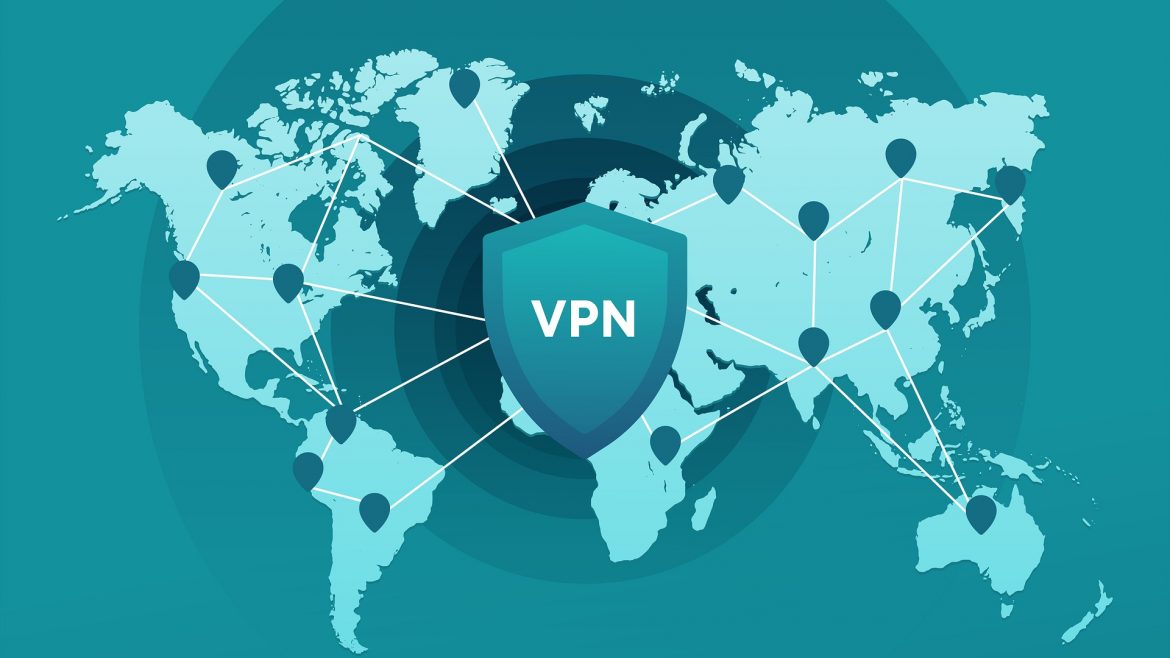The internet has become an integral part of our lives, and we’re using it for more than just checking emails and streaming shows – we’re sending sensitive data across the web. That’s why having a secure connection is essential to keep your data safe. So how do you protect yourself while browsing the web? The answer lies in Virtual Private Networks (VPN). VPNs provide users with a secure connection by encrypting their data and rerouting all traffic through secure tunnels, making sure that no one can access or intercept your data. In this article, we will explore how a VPN works, outlining the different types of VPNs and protocols used to establish a secure connection.
How Does VPN Work?
A VPN (Virtual Private Network) is a secure network that allows you to access the internet anonymously by encrypting your data and rerouting it through secure tunnels. By using a VPN, you can protect yourself from online threats while still being able to browse the web without any restrictions. VPNs use advanced encryption protocols, tunneling protocols, and remote servers to create a private connection between your device and the internet. This connection ensures that all of your data is encrypted and secure, making sure that no one can track or intercept it. Additionally, since your IP address is hidden, you are also able to bypass any geo-restrictions on certain websites or content. With a VPN connection, you also have privacy when using public Wi-Fi networks as well as access to restricted networks without having to physically be at their location. All in all, a VPN provides users with increased security while browsing the web and engaging in online activities.
A VPN is the best way to stay secure online and access the web without any restrictions. Now, let’s take a look at how to establish a secure connection with a VPN!

Establishing a Secure Connection
Establishing a secure connection with a VPN is easy. First, all you need to do is select your preferred VPN service provider and sign up for their VPN service plan. Once registered, you will be provided with instructions on how to install the software onto your device(s). After installation is complete, you can then establish a secure connection to the internet. To do this, you will have to connect to the VPN’s remote servers by entering a username and password or using an authentication key. Once connected, all of your traffic will be encrypted and rerouted through secure tunnels so that no one can intercept it. Additionally, since your IP address is hidden, you are also able to bypass any geo-restrictions on certain websites or content. With a secure VPN connection in place, you can now enjoy increased online privacy and unrestricted access to the web!
Encryption and Decryption of Data
Encryption and decryption of data is an important part of protecting information sent over the internet. This process involves transforming data into a code so that only those with the proper key can access it. Encryption is used when sending information, while decryption is used when receiving it. The strength of the encryption and decryption process lies in the use of complex algorithms and protocols such as AES, RSA, and Diffie-Hellman. These protocols are designed to keep data safe during transmission by scrambling it so that anyone intercepting it will not be able to make sense of it. Additionally, these protocols also ensure integrity by verifying that any changes made to the data have been authorized by the sender. With encryption and decryption protocols in place, businesses can rest assured that their private information remains secure even when traveling across public networks such as Wi-Fi or mobile networks.
Tunneling Protocols Used by VPNs
Tunneling protocols are an integral part of any Virtual Private Network (VPN) and are used to establish secure connections between two or more networks. These protocols create a tunnel through which data is passed, allowing users to access the internet securely from remote locations. The most popular tunneling protocols include Point-to-Point Tunneling Protocol (PPTP), Layer 2 Tunneling Protocol (L2TP), and Internet Protocol Security (IPsec). Each of these protocols offers different levels of security, depending on the type of traffic being transferred. For example, PPTP is considered to be less secure than L2TP and IPsec but is suitable for streaming audio and video content. On the other hand, L2TP provides stronger encryption than PPTP while IPsec provides the highest level of security and is ideal for sending sensitive information such as credit card numbers over public networks. By using tunneling protocols, businesses can ensure that their online activities remain private regardless of their physical location or the type of public Wi-Fi network they are connecting to.
Remote-Access VPNs
Remote-access VPNs are an important part of modern business networks, allowing employees to securely access their corporate network from any location with an internet connection. These services create a secure tunnel between the user’s device and a remote server, which provides users with both privacy and anonymity while browsing the web. As all internet traffic passes through this secure tunnel, it is encrypted using various encryption protocols such as IPsec or SSL/TLS. This ensures that only authorized users can access the data and prevents data from being intercepted by hackers or malicious actors. Remote-access VPNs also allow users to appear as if they are in another country by hiding their IP address, giving them access to content that may be blocked in their physical location. By using these services, businesses can ensure that their online activities remain private and secure regardless of where their employees are located.
Site-to-Site VPNs
Site-to-site VPNs are an essential part of many businesses’ networks, providing secure connections between multiple branch offices and headquarters. By creating a virtual private network (VPN), data is securely transmitted across the public internet from one location to another. Site-to-site VPNs encrypt data using tunneling protocols such as IPsec or SSL/TLS, which ensures that only authorized users can access the data and prevents data from being intercepted by malicious actors. This allows businesses to securely share files, databases, and other resources between multiple locations without having to invest in expensive dedicated networks. Additionally, site-to-site VPNs enable employees to work remotely while still having access to their corporate network, giving them the flexibility they need while maintaining tight security over their data. With these services, businesses can ensure that their online activities remain secure regardless of physical location.
Securing Your Online Activities With a VPN
Securing your online activities is becoming increasingly important in today’s digital world. With so many people connecting to the internet through public wi-fi networks and using their mobile devices on the go, you must protect yourself from potential cyber threats. One of the most effective ways to do this is by using a Virtual Private Network (VPN). A VPN works by encrypting your internet traffic and routing it through a secure tunnel to a remote server, where it is then decrypted before being sent out onto the internet. This process helps to keep your data safe from interception by internet service providers or unscrupulous users on public wi-fi networks. Additionally, most VPN services use advanced encryption protocols to ensure that your data remains secure even when you are accessing the internet from different physical locations. By using a VPN, you can rest assured that your online activities remain private and secure no matter where you are.
By using a VPN, you can rest assured that your online activities remain both private and secure. With the added benefit of being able to protect your entire network from potential threats and masking your IP address and physical location, you can browse the web with peace of mind. Keep reading to learn more about how you can reroute all internet traffic through secure tunnels and servers!

Browse privately and safely on public Wi-Fi. Hide your IP address and mask your location. Securely route all internet traffic.
Secure your entire network from potential threats and keep your IP address hidden from ISPs and others by using a Virtual Private Network (VPN). VPNs work by encrypting all of your internet traffic and routing it through a secure tunnel to a remote server, where it is then decrypted before being sent out onto the internet. This helps to mask your physical location and IP address, allowing you to browse the web anonymously. Additionally, most VPNs use advanced encryption protocols to ensure that your data remains secure even when you are accessing the internet from different physical locations. By using a VPN, you can rest assured that all of your online activities remain private and secure no matter where you are. Additionally, they help protect your network from potential cyber threats by rerouting all of its traffic through secure tunnels and servers. With these added benefits, you can securely access the internet without worrying about privacy or security breaches.
Conclusion
A Virtual Private Network (VPN) is a great way to ensure that your network remains secure against potential threats and that your IP address and physical location remain private. VPNs encrypt all of your internet traffic and route it through a secure tunnel, masking your identity and allowing you to browse the web anonymously. Additionally, they help protect your online activities from potential cyber threats by rerouting all of your network traffic through secure tunnels and servers. With these added benefits, you can access the internet confidently knowing that all of your data is safe and secure.
